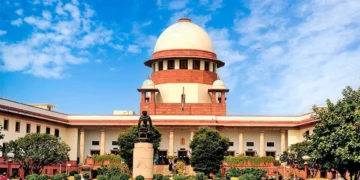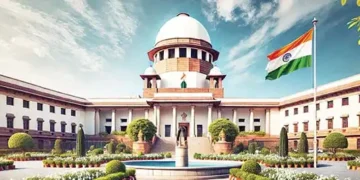Blitz Bureau
NEW DELHI: THE Supreme Court has refused to entertain a plea seeking to bring women engaged in political sector under the protection of anti-sexual harassment law. A Bench of Chief Justice of India (CJI) BR Gavai and Justices K Vinod Chandran and Atul S Chandurkar questioned how political parties could fall within the definition of “workplace” under the POSH Act, remarking that there exists no employer–employee relationship between a party and its workers.
The Special Leave Petition (SLP) challenged a March 2022 Kerala High Court judgment that had “adopted a narrow and restrictive interpretation” of the Sexual Harassment of Women at Workplace (Prevention, Prohibition and Redressal) Act, 2013 (POSH Act).
The HC had held that political parties and similar entities, in the absence of a conventional employer-employee relationship, are not obliged to constitute Internal Complaints Committees (ICCs).
The SLP argued that the impugned ruling had excluded “large categories of women engaged in non-traditional, informal, or freelance arrangements — particularly in the film, media, and political sectors — from the protection of the Act.”
The plea stressed that the POSH Act, enacted in line with the Supreme Court’s landmark judgment in Vishaka vs State of Rajasthan case, was intended to have wide coverage. “Its definitions of ‘employer’, ‘employee’, and ‘workplace’ were deliberately framed in broad terms, in keeping with the beneficial object of the legislation,” the petition stated. However, the Kerala High Court’s interpretation, the SLP contended, undermined this object by holding that ICCs are mandatory only for film production units with more than ten employees, and not for industry associations such as AMMA or FEFKA. “It not only defeats the purpose of the POSH Act but also violates fundamental rights under Articles 14, 15, 19(1)(g), and 21 of the Constitution,” it added.
The SLP urged the Supreme Court to bring within the POSH Act’s ambit all women “engaged in workplaces where de facto organisational control is exercised — whether by production associations in cinema or by political parties in the political arena


























